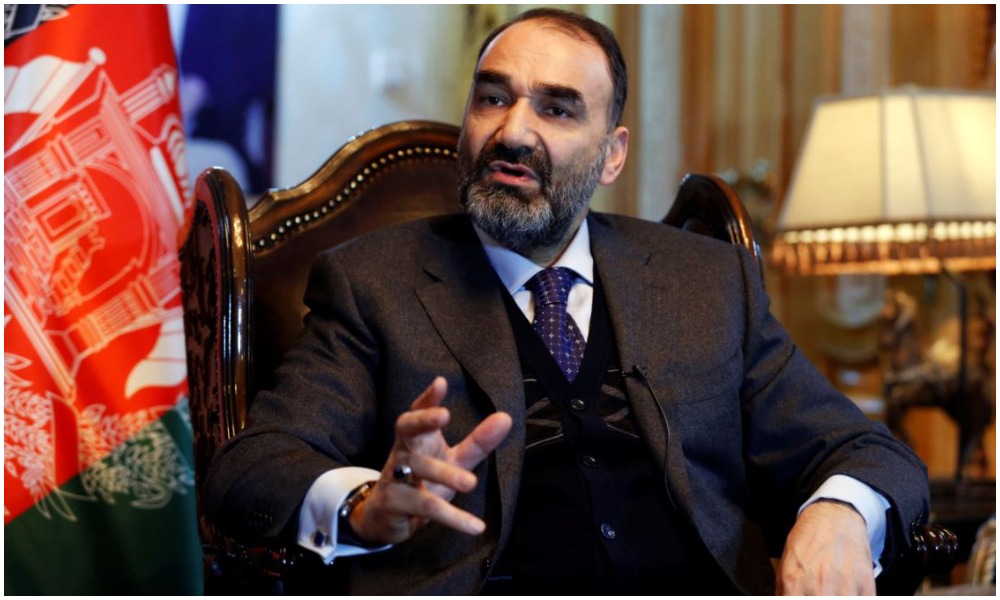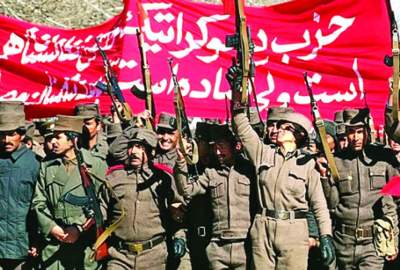As parties to the Afghan peace talks process in Doha stall over preliminary issues, Atta Mohammad Noor, CEO of Jamiat Party and former governor of Balkh province has called on New Delhi to help by playing a more proactive role in the dialogue and hold talks with the Taliban.
Publish dateSunday 25 October 2020 - 13:17
Story Code : 221355
Noor, who is currently in India, is the fourth prominent Afghan leader to visit India in the past few weeks to discuss the peace talks process – after visits by Abdullah Abdullah, chairman of the High Council for National Reconciliation; former Afghan vice-president Marshal Abdul Rashid Dostum and Gulbuddin Hekmatyar, an Afghan politician and former Mujahideen Leader.
In an interview with ThePrint in Delhi this past week, Noor, who picked up a weapon in 2016 to save the lives of Indian diplomats during an attack on their consulate in Balkh province, said he was there to try to garner India’s support.
“The situation in Afghanistan is currently quite complicated. That’s the reason I am here in India. I really hope that India will be more proactive because India has got power, it has got leverage, and it has got influence in the region,” Noor said.
“If India does not do that, then this will give more ground to the Pakistanis. As the Americans are leaving, the Pakistanis are finding more space in Afghanistan,” Noor said.
Until now, however, India’s policy has been that it will not engage with the Taliban, as it continues to see the fundamentalist group as being aided by Pakistan.
Recounting his experience in Mazar-e-Sharif four years ago, Noor told ThePrint it had been a rainy winter day in January of 2016 when the consulate was attacked.
Noor said he reached the site of the consulate attack in 12 minutes and “started shooting the Taliban and other terrorists from Kashmir with my M4 sniper rifle”.
“I put my life at risk but I had to protect the diplomats and Indian friends. I felt we should give it back in return of what India did for us when we faced difficulties. There were some insurgents who had come from Kashmir as well. I reached there in 12 minutes, took up my arms and left for the consulate to defend it,” he added.
“I was the governor at that time and more than 10,000 soldiers were under my control. But I deemed it my personal responsibility to defend my brothers who were stuck there,” he said.
According to him, insurgents tried to enter the consulate but were held off from doing so by security forces but managed to gain entry into a building nearby where they started shooting.
The siege lasted 24 hours, with consulate staff having had to take refuge in safe rooms throughout the attack.
“I started shooting with my people and continued shooting till the morning so that they cannot attack back. I am sure it was me who killed the first person and finally gunned all of them down. With their blood, they wrote Kashmir and Afzal on the wall,” he said.
Noor also got helicopters to bring in reinforcement soldiers and said he managed to guide the pilots as well.
As External Affairs Minister S. Jaishankar said in a tweet after their meeting earlier this week, Noor is regarded as a “long-standing friend of India”.
But Noor has pointed out that he is concerned Afghanistan might return to what it was during the Taliban’s regime and said India has the capability to become a “facilitator” of the peace talks and join other countries who are playing the same role.
“The peace talks going on in Qatar have not yielded any results yet. And the Taliban are being more aggressive. It seems they are being supported by others … India is a big and strong country and should be one of the facilitators (in the peace talks),” he said.
Otherwise, he said, there may come a situation where some of the Taliban leaders come to power and become part of the government while others continue to wage attacks, ThePrint reported.
“If that happens, we will get back to what happened in 1996. The situation can be worse than that,” he added. Being an important stakeholder in the development process there, India cannot afford to let that happen, he said. “I really hope India can be more proactive. India has more nationalist and strategic friends in Afghanistan.”
Noor also pointed out that the current peace talks can throw up very different results, each with consequences for India.
“There can be two situations arising out of the current peace talks. Either it will conclude and there will be a new government or the peace talks will fail and the fighting will continue. If the new government comes in, India will have its strategic partners in the new government, as always, by defusing all the plots hatched by other countries,” he said.
“Both countries are fighting terrorism … We do not want to drag the feet of India in a prolonged war. But India should engage with the Taliban … I want India to engage with the Taliban but not give them legitimacy.”
He said China is playing its role in the peace talks “aggressively” and so are the Russians and the Iranians.
Noor asked Jaishankar Wednesday to begin negotiations with the Taliban, something that the Afghan government has also reportedly been asking New Delhi to do but he said if the talks fail, the insurgents will have an “upper hand” and this will give more leeway to Pakistan.
“At that time, we would need to stand by the Afghan government … We will have a united resistance against the Taliban if the situation becomes so,” Noor said.
avapress.com/vdchmznim23nixd.01t2.html
Tags
Top hits







